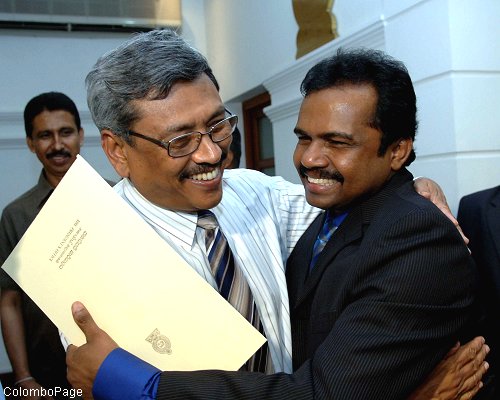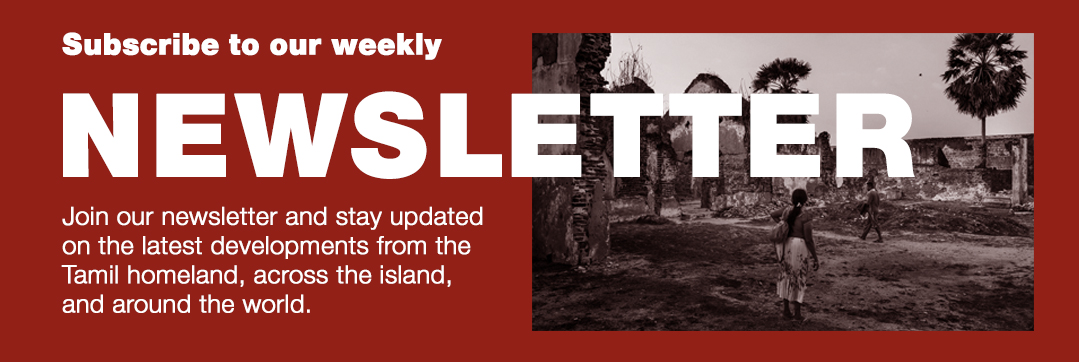
This month, Sri Lankan government-backed paramilitary leader Vinayagamoorthy Muralitharan (alias Karuna Amman) caused a stir when he boasted of killing “2,000 to 3,000 Sri Lankan Army personnel in one night at Elephant Pass” during the armed conflict. Karuna, a close ally of the ruling Rajapaksa regime, is accused of a litany of crimes including kidnappings, extortion, and executions, many of which took place with government complicity after he defected from the LTTE. His comments sparked outrage amongst Sinhala politicians, who have demanded he be held accountable for the killing of the soldiers. The office of the UN human rights chief and Human Rights Watch also picked up on the latest development, reiterating calls for Karuna, and other war criminals on the island, to be held accountable.
The focus by human rights groups on Karuna and his crimes are understandable, given the opportunity, it presents for accountability in a landscape where any semblance of justice seems almost impossible. However, the opportunistic scapegoating of Karuna by elements within the Sri Lankan government is simply a smokescreen distracting from their promotion of war criminals to positions of power and rejection of international accountability.
This 'Karuna' spectacle should not distract from the worryingly deteriorating situation on the island. Over the past months, the state has doubled down on its authoritarian crackdown. The recently announced Presidential Task Forces, on 'archaeology' and on ‘building a virtuous society’, alongside the Ministry of Defence’s swallowing of state institutions, are a blatant move towards military rule. And as the killing of another unarmed Tamil man by the Sri Lankan army illustrated last week, violence on the island remains a reality.
Dr Thusiyan Nandakumar, Editor-In-Chief
_____
For more regular updates, sign up to our newsletter below.
____

